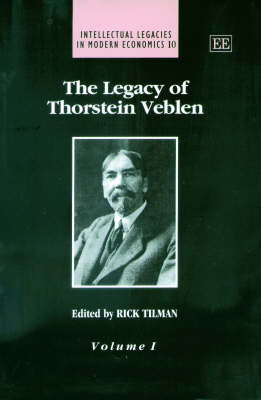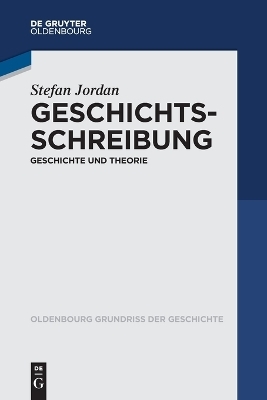
The Legacy of Thorstein Veblen
Edward Elgar Publishing Ltd (Verlag)
978-1-84064-722-8 (ISBN)
Veblen was an original thinker, responsible for introducing and popularising a host of important concepts and insights. He ignited controversy not only in economics, but also in sociology, history and political science. The number and quality of the responses to his work provide evidence of the novelty and explanatory power of his ideas. These comprehensive volumes will enable the reader to sample the broad spectrum of Veblen's thought and that of his critics and interpreters. They include critical appraisals of the corpus of his published work as well as reinterpretations of his life and influence on the social sciences particularly economics, political science and sociology.This authoritative collection includes reprints of materials previously published by leading scholars on nearly every aspect of Veblen's life and work. It will be invaluable to professional scholars and graduate students who wish to heighten their understanding of the alternatives to formalism in the social studies.
Edited by Rick Tilman, Professor Emeritus of Public Administration, University of Nevada, Las Vegas, US
Contents:
Volume I
Acknowledgements
Introduction Rick Tilman
PART IORIGINS AND BASIS OF VEBLEN’S THOUGHT
1. William M. Dugger (1979), ‘The Origins of Thorstein Veblen’s Thought’
2. Anne Mayhew (1987), ‘The Beginnings of Institutionalism’
3. Philip Mirowski (1987), ‘The Philosophical Bases of Institutionalist Economics’
4. Stephen Edgell and Rick Tilman (1989), ‘The Intellectual Antecedents of Thorstein Veblen: A Reappraisal’
PART IIHIS THEORY OF EVOLUTIONARY DEVELOPMENT AND INSTITUTIONAL CHANGE
5. Stephen Edgell (1975), ‘Thorstein Veblen’s Theory of Evolutionary Change’
6. Malcolm Rutherford (1984), ‘Thorstein Veblen and the Processes of Institutional Change’
7. Paul D. Bush (1987), ‘The Theory of Institutional Change’
8. Ann Jennings and William Waller (1994), ‘Evolutionary Economics and Cultural Hermeneutics: Veblen, Cultural Relativism, and Blind Drift’
9. Geoffrey M. Hodgson (1998), ‘On the Evolution of Thorstein Veblen’s Evolutionary Economics’
10. Clare Virginia Eby (1998), ‘Veblen’s Assault on Time’
PART IIITHEORY OF HUMAN NATURE
11. Melville J. Herskovits (1936), ‘The Significance of Thorstein Veblen for Anthropology’
12. Thomas C. Mayberry (1969), ‘Thorstein Veblen on Human Nature’
13. John P. Diggins (1977), ‘Animism and the Origins of Alienation: The Anthropological Perspective of Thorstein Veblen’
14. William T. Waller, Jr. (1988), ‘The Concept of Habit in Economic Analysis’
15. Stephen Edgell and Jules Townshend (1993), ‘Marx and Veblen on Human Nature, History, and Capitalism: Vive la Différence!’
PART IVCONSUMPTION
16. H. Leibenstein (1950), ‘Bandwagon, Snob, and Veblen Effects in the Theory of Consumers’ Demand’
17. Robert L. Steiner and Joseph Weiss (1951), ‘Veblen Revised in the Light of Counter-Snobbery’
18. David B. Hamilton (1987), ‘Institutional Economics and Consumption’
19. Stephen Edgell (1992), ‘Veblen and Post-Veblen Studies of Conspicuous Consumption: Social Stratification and Fashion’
20. Roger Mason (1995), ‘Interpersonal Effects on Consumer Demand in Economic Theory and Marketing Thought, 1890–1950’
21. Colin Campbell (1995), ‘Conspicuous Confusion? A Critique of Veblen’s Theory of Conspicuous Consumption’
22. Rick Tilman (1999), ‘Thorstein Veblen and the Disinterest of Neoclassical Economists in Wasteful Consumption’
PART VCRITIC OF CLASSICAL AND NEOCLASSICAL ECONOMICS
23. A.W. Coats (1954), ‘The Influence of Veblen’s Methodology’
24. Marc R. Tool (1977), ‘A Social Value Theory in Neoinstitutional Economics’
25. Syamal K. Ghosh (1984), ‘On the Validity of Veblen’s Criticisms of Economic Orthodoxy: An Analysis of His Positions in the Light of Current Conditions and Economic Thought’
26. Sasan Fayazmanesh (1998), ‘On Veblen’s Coining of the Term "Neoclassical"’
Name Index
Volume II
Acknowledgements
An introduction by the editor to all three volumes appears in Volume I
PART IVEBLEN’S ECONOMIC SYSTEM
1. Karl L. Anderson (1933), ‘The Unity of Veblen’s Theoretical System’
2. J.A. Hobson (1937), ‘The Economics of Thorstein Veblen’
3. Paul M. Sweezy (1957), ‘The Theory of Business Enterprise and Absentee Ownership’
4. Kenneth J. Arrow (1975), ‘Thorstein Veblen as an Economic Theorist’
5. Donald A. Walker (1977), ‘Thorstein Veblen’s Economic System’
6. James M. Cypher (1998), ‘Financial Dominance in the US Economy: The Increased Relevance of Veblen’s Analysis in a Post-Keynesian Structure’
PART IION SOCIALISM AND RADICAL ECONOMICS
7. Joseph E. Pluta and Charles G. Leathers (1978), ‘Veblen and Modern Radical Economics’
8. E.K. Hunt (1979), ‘The Importance of Thorstein Veblen for Contemporary Marxism’
9. James Ronald Stanfield (1989), ‘Veblenian and Neo-Marxian Perspectives On the Cultural Crisis of Late Capitalism’
10. William M. Dugger and William Waller (1996), ‘Radical Institutionalism: From Technological to Democratic Instrumentalism’
PART IIIVEBLEN AS SOCIOLOGIST AND SOCIAL PHILOSOPHER
11. Arthur K. Davis (1945), ‘Sociological Elements in Veblen’s Economic Theory’
12.Abram L. Harris (1953), ‘Veblen as Social Philosopher – A Reappraisal’
13. David Riesman (1953), ‘The Social and Psychological Setting of Veblen’s Economic Theory’
PART IVSOCIOLOGY OF KNOWLEDGE AND CULTURE
14. Walter P. Metzger (1949), ‘Ideology and the Intellectual: A Study of Thorstein Veblen’
15. Frank J. Weed (1972), ‘Thorstein Veblen’s Sociology of Knowledge’
16. Warren J. Samuels (1990), ‘The Self-Referentiability of Thorstein Veblen’s Theory of the Preconceptions of Economic Science’
17. Rick Tilman (1999), ‘The Frankfurt School and the Problem of Social Rationality in Thorstein Veblen’
PART VFEMINISM
18. Edythe S. Miller (1972), ‘Veblen and Women’s Lib: A Parallel’
19. Jeffrey Waddoups and Rick Tilman (1992), ‘Thorstein Veblen and the Feminism of Institutional Economists’
20. Clare Virginia Eby (1992), ‘Veblen’s Anti-Anti-Feminism’
21. Ann Jennings (1998), ‘Veblen’s Feminism in Historical Perspective’
22. Nils Gilman (1999), ‘Thorstein Veblen’s Neglected Feminism’
PART VISATIRIST, STYLIST AND GRAMMARIAN
23. John Cummings (1899), ‘The Theory of the Leisure Class’
24. Joseph Dorfman (1932), ‘The "Satire" of Thorstein Veblen’s Theory of the Leisure Class’
25. Teresa Toulouse (1985), ‘Veblen and His Reader: Rhetoric and Intention in The Theory of the Leisure Class’
26. Paul D. Bush (1999), ‘Veblen’s "Olympian Detachment" Reconsidered’
27. Gary Alan Fine (1994), ‘The Social Construction of Style: Thorstein Veblen’s The Theory of the Leisure Class as Contested Text’
PART VIION THE HIGHER LEARNING IN AMERICA
28. Charles A. Beard (1918), ‘The Hire Learning in America’
29. Harold J. Laski (1919), ‘The Higher Learning in America’
30. Thomas Sowell (1969), ‘Veblen’s Higher Learning After Fifty Years’
31. Arthur J. Vidich (1994), ‘The Higher Learning in America in Veblen’s Time and Our Own’
Name Index
Volume III
Acknowledgements
An introduction by the editor to all three volumes appears in Volume I
PART IHIS IDEAL POLITICAL ECONOMY
1. H.J. Hodder (1956), ‘The Political Ideas of Thorstein Veblen’
2. Rick Tilman (1972), ‘Veblen’s Ideal Political Economy and Its Critics’
3. Donald R. Stabile (1988), ‘Veblen’s Analysis of Social Movements: Bellamyites, Workers, and Engineers’
4. Charles G. Leathers (1989), ‘Thorstein Veblen’s Theories of Governmental Failure: The Critic of Capitalism and Democracy Neglected Some Useful Insights, Hindsight Shows’
5. Malcolm Rutherford (1992), ‘Thorstein Veblen and the Problem of the Engineers’
PART II THE ROLE OF THE STATE IN ECONOMIC DEVELOPMENT
6. Niles M. Hansen (1964), ‘Weber and Veblen on Economic Development’
7. Clarence E. Ayres (1960), ‘Institutionalism and Economic Development’
8. Geoffrey Hodgson (1996), ‘An Evolutionary Theory of Long-Term Economic Growth’
PART IIIGERMANY AND JAPAN: IMPERIALISM, WAR AND PEACE
9. Graham Wallas (1915), ‘Veblen’s Imperial Germany and the Industrial Revolution’
10. George H. Mead (1918), ‘The Nature of Peace and the Terms of Its Perpetuation. By Thorstein Veblen’
11. Henry A. Wallace (1940), ‘Veblen’s "Imperial Germany and the Industrial Revolution"’
12. William Appleman Williams (1957), ‘The Nature of Peace’
13. Derk Visser (1969), ‘The German Captain of Enterprise: Veblen’s Imperial Germany Revisited’
14. Jeff E. Biddle and Warren J. Samuels (1991), ‘Thorstein Veblen on War, Peace, and National Security’
PART IVTHE BUSINESS/INDUSTRY DICHOTOMY
15. J.A. Banks (1959), ‘Veblen and Industrial Sociology’
16. William T. Waller, Jr. (1982), ‘The Evolution of the Veblenian Dichotomy: Veblen, Hamilton, Ayres, and Foster’
17. Phillip Anthony O’Hara (1993), ‘Veblen’s Analysis of Business, Industry and the Limits of Capital: An Interpretation and Sympathetic Critique’
18. Geoffrey M. Hodgson (1998), ‘Dichotomizing the Dichotomy: Veblen versus Ayres’
PART VEGALITARIAN THEORIST OF COLLECTIVE WEALTH
19. Ken McCormick (1989), ‘Veblen on the Nature of Capital’
20. Phillip Anthony O’Hara (1999), ‘Thorstein Veblen’s Theory of Collective Social Wealth, Instincts and Property Relations’
PART VI ECOLOGY AND DEMOGRAPHICS
21. Joseph J. Spengler (1972), ‘Veblen on Population and Resources’
22. Wilbur R. Jacobs (1978), ‘The Great Despoliation: Environmental Themes in American Frontier History’
23. Ron D. White (1978), ‘Growth versus Conservation: A Veblenian Perspective’
PART VII VEBLEN’S LIFE AND WORK RECONSIDERED
24. Florence Veblen (1931), ‘Thorstein Veblen: Reminiscences of His Brother Orson’
25. Stephen Edgell (1996), ‘Rescuing Veblen From Valhalla: Deconstruction and Reconstruction of a Sociological Legend’
26. Russell H. Bartley and Sylvia Erickson Bartley (2000), ‘Stigmatizing Thorstein Veblen: A Study in the Confection of Academic Reputations’
PART VIII VEBLEN’S INTELLECTUAL LEGACY
27. Solidelle Fortier Wasser (1994), ‘Veblen’s "Post-Modernist" Economics’
28. C. Wright Mills (1953), ‘Introduction to the Mentor Edition’
29. C.E. Ayres (1963), ‘The Legacy of Thorstein Veblen’
Name Index
| Erscheint lt. Verlag | 29.7.2003 |
|---|---|
| Reihe/Serie | Intellectual Legacies in Modern Economics series |
| Verlagsort | Cheltenham |
| Sprache | englisch |
| Maße | 169 x 244 mm |
| Themenwelt | Geisteswissenschaften ► Geschichte ► Geschichtstheorie / Historik |
| Sozialwissenschaften ► Soziologie ► Allgemeines / Lexika | |
| Wirtschaft ► Allgemeines / Lexika | |
| Wirtschaft ► Volkswirtschaftslehre | |
| ISBN-10 | 1-84064-722-1 / 1840647221 |
| ISBN-13 | 978-1-84064-722-8 / 9781840647228 |
| Zustand | Neuware |
| Informationen gemäß Produktsicherheitsverordnung (GPSR) | |
| Haben Sie eine Frage zum Produkt? |
aus dem Bereich


